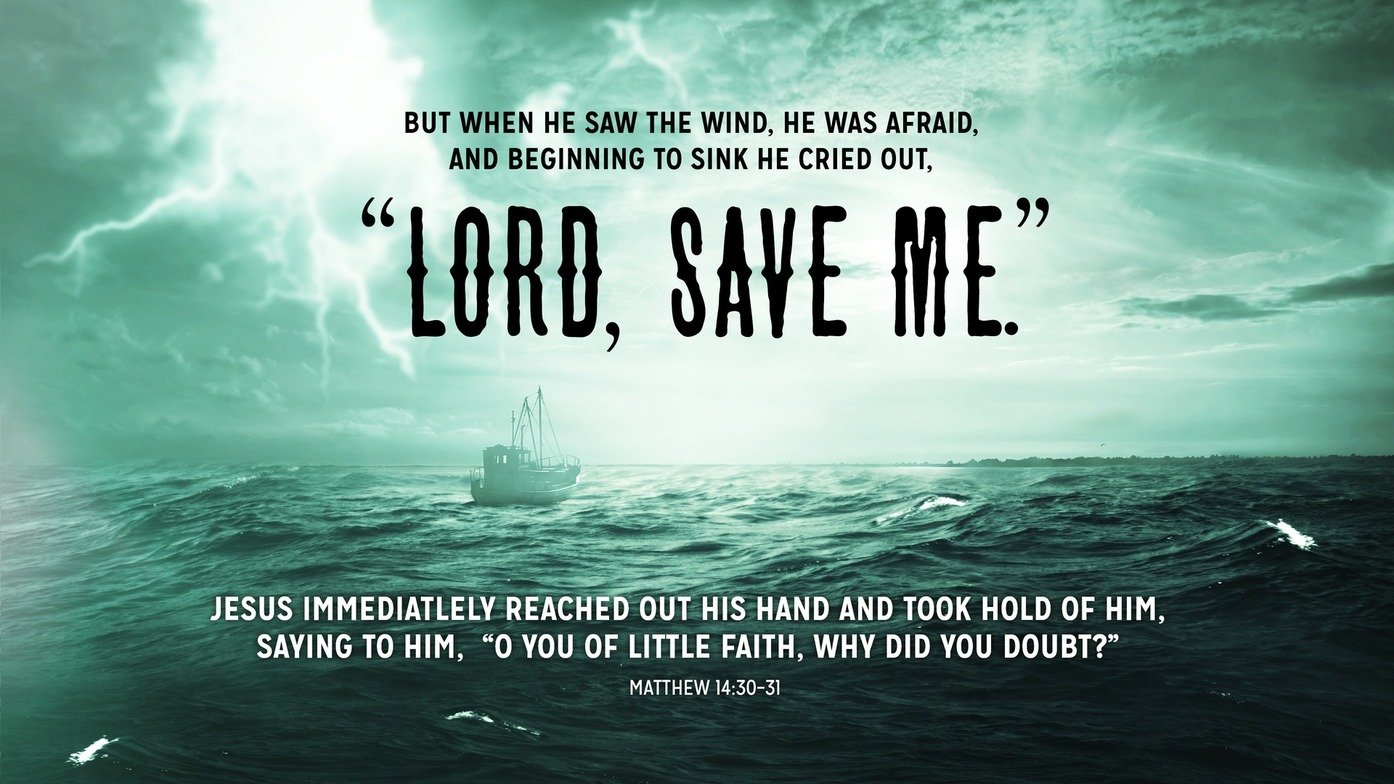Think Differently About Doubts
““Lord, if it’s you,” Peter replied, “tell me to come to you on the water.”
“Come,” he said.
Then Peter got down out of the boat, walked on the water and came toward Jesus. But when he saw the wind, he was afraid and, beginning to sink, cried out, “Lord, save me!”
Immediately, Jesus reached out his hand and caught him. “You of little faith,” he said, “why did you doubt?””
As I write this, we’re in the middle of our series on doubt. It’s inspired by a book called Wrestling with Doubt, Finding Faith by Adam Hamilton. Doubt is almost a dirty little secret among disciples of Jesus. We usually learn early in our walk with Christ that we need to have faith. The Bible tells us repeatedly that having strong faith is critical to who we’re supposed to be. For example, see Matthew 6:30, Matthew 8:10, Mark 4:40, John 11:40, 2 Corinthians 5:7, Hebrews 11:1, Hebrews 11:6, or James 1:5-6. So, when we have questions or doubts, we usually won’t name or discuss them.
It might be helpful to think differently about doubts in our faith walk. Some of you may have heard that in Chinese, the word for crisis combines the words for danger and opportunity. I read recently that there may be a better interpretation. One speaker suggests that the word for crisis combines the words that mean “danger” and “inflection point.” Think of it as a time when something is frightening, but there’s also a chance to make things different. What if we understood the doubt or question as a chance to strengthen our faith and deepen our relationship with God?
Consider the Bible story where we find the verses above. It’s where Jesus walks on water. The whole story is in Matthew 14:22-33. Peter and the other disciples have been fighting a storm on the Sea of Galilee for most of the night. Jesus comes to them by walking on the lake. When they see Him, they’re scared and unsure that it’s Jesus. Peter tests Him by asking to walk to Jesus on the water. When we tell this story, we usually focus on two things: first, it took incredible faith for Peter to get out of the boat. Second, he sank, and Jesus caught him. Notice what happens in the passage we’re highlighting now. The miracle Peter asked for was happening. He was literally walking on the water like Jesus. When Peter starts to pay attention to the wind, something happens in his mind. He remembers that he’s not supposed to be able to do this. In other words, even though God is doing something extraordinary to Him in real time, he doubts God. Many of us can quote what Jesus says to him from memory, “You of little faith,” he said, “why did you doubt?”
This statement reinforces the lesson above that we cannot and should not doubt God. However, we know that we all have doubts. We have questions about God’s decisions and reasons for them. Like Peter, God could be doing something amazing for you, but something inside you couldn’t believe it. Something in your brain said, “This is not how it’s supposed to work.” You started to sink. The lesson would be that Peter learned to trust Jesus’ love and power, no matter how the world felt around him. Carrying that lesson forward would demonstrate how he met his “danger,” and it would become a “point for things to change” for the better. The same is true for us. I hope that during these weeks, you’ll unearth and confront some questions you have. Don’t fear or deny that you sometimes question or doubt God. Use your doubts and questions as opportunities to grow your faith. Lean into your relationship with Christ. Trust that He will show you how to work through the doubt to a new place of stronger faith.
Take the journey. I’m glad to take it with you.
Pastor Scott







